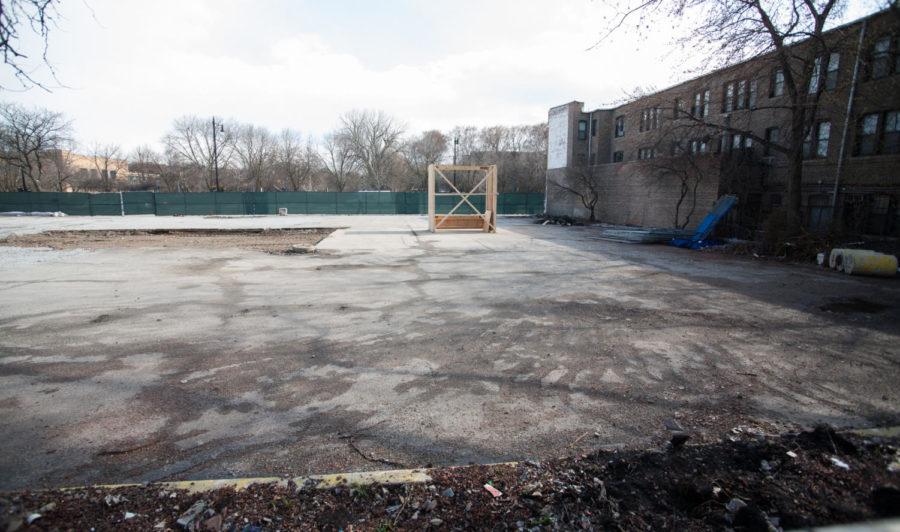Construction of Vue53, a 13-story retail and residential building at 1330 East 53rd Street, is expected to begin in the first half of this year pending city permits, Calmetta Coleman, director of Communications for Civic Engagement, said in an e-mail.
Coleman said the project is expected to be completed by fall 2015, and that University students will be “welcome to apply” for apartments in the building. There will be retail property on the ground floor of the development.
According to Mesa Development, the Chicago-based firm in charge of the development, the University owns the land Vue53 will be built on, but Mesa will own the building. The site of Vue53 used to be home to a Mobil gas station, which was demolished in the summer.
Plans to begin construction come on the heels of the decision this February by Judge Kathleen Pantle to dismiss a lawsuit filed by community group Save 53rd Street on procedural grounds, as urged by DLA Piper LLP, a private firm representing the University of Chicago. Save 53rd Street is a Hyde Park community group dedicated to opposing the Vue53 development with a motto of “sky, not skyscrapers.” The motion stated that the plaintiffs did not give sufficient notice of their challenge to the zoning ordinance to property owners within 250 feet of the site.
Michael Scott, a member of Save 53rd Street and a plaintiff in the original suit, said that Save 53rd Street plans to file an appeal within a month.
“A motion to dismiss the suit on procedural grounds does not in general speak to at all the merits of the case,” Scott said. “Our objection to [Vue53] is that we think it’s the wrong building. We are pursuing our objection to that through a lawsuit because we believe it is indeed illegal.”
Scott said that Save 53rd Street supports development, but that the size of Vue53 makes it a bad fit for Hyde Park. Scott’s group alleges that the city changed a law regarding the maximum height of new buildings specifically for the construction of Vue53.
“This is significantly out of scale for this area of the neighborhood,” Scott said. “It is our contention that the zoning change which needed to be put through the city council was not legal under Illinois law.”









